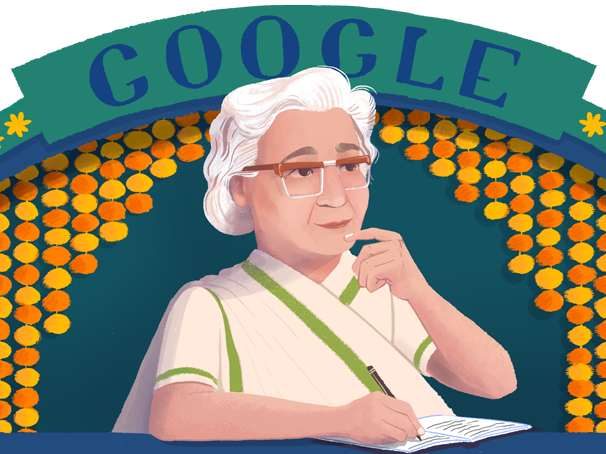Ismat Chughtai: Who was the iconic feminist author?
Google celebrates 107th birthday of groundbreaking Indian writer

Your support helps us to tell the story
From reproductive rights to climate change to Big Tech, The Independent is on the ground when the story is developing. Whether it's investigating the financials of Elon Musk's pro-Trump PAC or producing our latest documentary, 'The A Word', which shines a light on the American women fighting for reproductive rights, we know how important it is to parse out the facts from the messaging.
At such a critical moment in US history, we need reporters on the ground. Your donation allows us to keep sending journalists to speak to both sides of the story.
The Independent is trusted by Americans across the entire political spectrum. And unlike many other quality news outlets, we choose not to lock Americans out of our reporting and analysis with paywalls. We believe quality journalism should be available to everyone, paid for by those who can afford it.
Your support makes all the difference.Today’s Google Doodle celebrates the life of Ismat Chughtai, an Indian writer whose work was celebrated – and censored – for its honest depictions of women’s lives.
Ms Chughtai was born in a small town in 1911 to a middle-class, Muslim family. Her father worked as a civil servant, meaning the author and and her nine brothers and sisters moved frequently.
As a child, Ms Chughtai stood out for her refusal to partake in traditional, feminine pastimes like embroidery, and for making friendships outside her social caste, according to the authors of "Women Writing in India".
What truly distinguished Ms Chughtai, however, was her desire for an education. After narrowly avoiding an arranged marriage at the age of 15, she convinced her parents to let her pursue a bachelor’s degree at Isabella Thoburn College. She later studied teaching at Aligarh Muslim University, becoming the first Indian Muslim woman to obtain both a bachelor of arts and a bachelor's in education degree, according to a publisher’s bio.
It was in university that Ms Chungtai first started writing, though she later recalled ripping up most of what she wrote at the time. In the 1930s, she began attending meetings for the Progressive Writers Association, which inspired her passion for human rights – a theme that appeared repeatedly in her later work.
Ms Chungtai’s most famous story, “Lihaaf” (“The Quilt”), was published in a Lahore-based literary journal in 1942. Among other things, the story describes a romantic relationship between a wealthy landlord’s wife and her female servant.
While the story is now celebrated as a classic, it was initially met with outcry – and even landed the author in court on charges of obscenity. Ms Chungtai refused to apologise for her depiction of female same-sex relationships, and the case was eventually tossed out.
Years later, however, the story continued to pain Ms Chungtai, though for different reasons.
“I am still labelled as the writer of 'Lihaaf'. The story brought me so much notoriety that I got sick of life,” she wrote in her memoir. “It became the proverbial stick to beat me with and whatever I wrote afterwards got crushed under its weight.”
But the author went on to write several other, groundbreaking stories in her lifetime, including one – “Gainda” (“Marigold”) – that tells the story of a lower-caste woman who falls in love with an upper-caste man. In “Vocation,” she describes several sex workers trying to make friends with a judgemental upper-caste woman.
Ms Chughtai also dabbled in film, after marrying director and screenwriter Shahid Lateef. She helped write Mr Lateef’s film "Ziddi", and the two later co-directed the movie "Faraib". A film version of "Lihaaf" is set to be released this year.
Ms Chughtai was awarded the prestigious Padma Shree by the Indian government in 1976 for her contributions to the field of literature. She died in 1991, at the age of 80.
Join our commenting forum
Join thought-provoking conversations, follow other Independent readers and see their replies
Comments